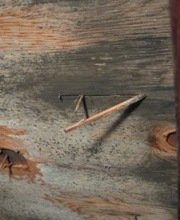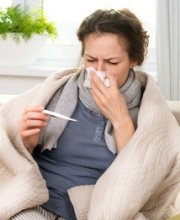Find a Mold Specialist Now
Click or Call, Toll-Free 24/7
Exposure to Mold During Pregnancy
Most people have heard that mold can cause health problems, but what about exposure to mold during pregnancy? How does exposure to mold affect pregnant moms and developing babies? Unfortunately, there is a lack of research in this area simply because it would be dangerous to intentionally expose pregnant women to mold in order to study the effects. Still, we do know a fair amount about how exposure to mold affects people, and we know that pregnant women may be particularly vulnerable to certain health problems.
We'll tell you what the available research says, what precautions you should take if you are expecting, and what to do if you find out you've been exposed to mold.
Is Exposure to Mold During Pregnancy Dangerous?
It's an important questions and unfortunately, there is not a simple, straight-forward answer. It's always risky to be exposed to mold, pregnant or not. Anyone can become ill from mold. Of course, when you're pregnant, there are two lives at stake and pregnancy itself puts added stress on your body, making you more susceptible to certain illnesses.

There is a real lack of research on the subject, but most pregnant women exposed to mold develop problems no more serious than mild to moderate hay fever-like symptoms. However, in rare instances, serious cases of pneumonia and other infections can result from exposure to mold. Any serious infection, mold-related or not, can threaten a pregnancy or lead to complications during childbirth.
There is research that links exposure to mold during infancy and early childhood with the development of asthma in children, but no research to date on whether prenatal exposure to mold is associated with asthma in children. The Centers for Disease Control and Prevention (CDC) also reports that exposure to some forms of mold during infancy can cause bleeding in the lungs, but it is not known if prenatal exposure might have a similar effect.
How Can You Avoid Exposure to Mold During Pregnancy?
You can't avoid all exposure to mold because there is mold everywhere, indoors and out. You can, however, avoid prolonged exposure to excessive amounts of mold, and that's what you should do. If you think there's mold growing in your home, you should have it removed as soon as possible. Until then, ask your doctor or midwife if it's safe for you to remain in the home until the mold can be removed.
To prevent increased exposure to potentially dangerous mold, don't attempt to clean up mold on your own when you're pregnant. Arrange for someone else to do the work for you, either a friend or family member or a mold removal professional.
If You've Been Exposed to Mold
If you're pregnant and you've been exposed to mold, see your doctor or midwife. Even if you're not experiencing any symptoms of mold-related health problems, talk to your health care provider just to be safe.
If you are experiencing symptoms, see a doctor as soon as possible. Symptoms to watch for include:
- coughing
- sneezing
- chest or nasal congestion
- shortness of breath
- sinus pain or pressure
- sore throat
- headache
- rash or hives
- worsening of asthma symptoms or increase in frequently and/or severity of asthma attacks, if you have asthma
Go to the nearest emergency room or call 911 if you're having significant difficulty breathing.
Mold Removal
In addition to seeing your health care provider for treatment, you'll need to arrange to have the mold removed from your home as soon as possible to prevent prolonged exposure to mold during pregnancy. We recommend hiring a professional to remove mold from your home if you're pregnant. Another option is for a friend or family member to handle the mold removal for you, but it's especially important to make sure the job is done correctly and completely if you're expecting a baby, so we really recommend calling in a professional.
If you are considering hiring a professional, or if a friend or family member is planning to do the work for you but you'd like some expert advice, we recommending scheduling a free consultation with a mold removal professional. A professional will visit your home, inspect the mold, explain the work that needs to be done, and answer any questions you may have. There is no cost and no obligation. Follow this link for more information or to find qualified mold removal professionals offering free consultations in your area.
Return From Exposure To Mold During Pregnancy To Our Main Mold Health Issues Page




